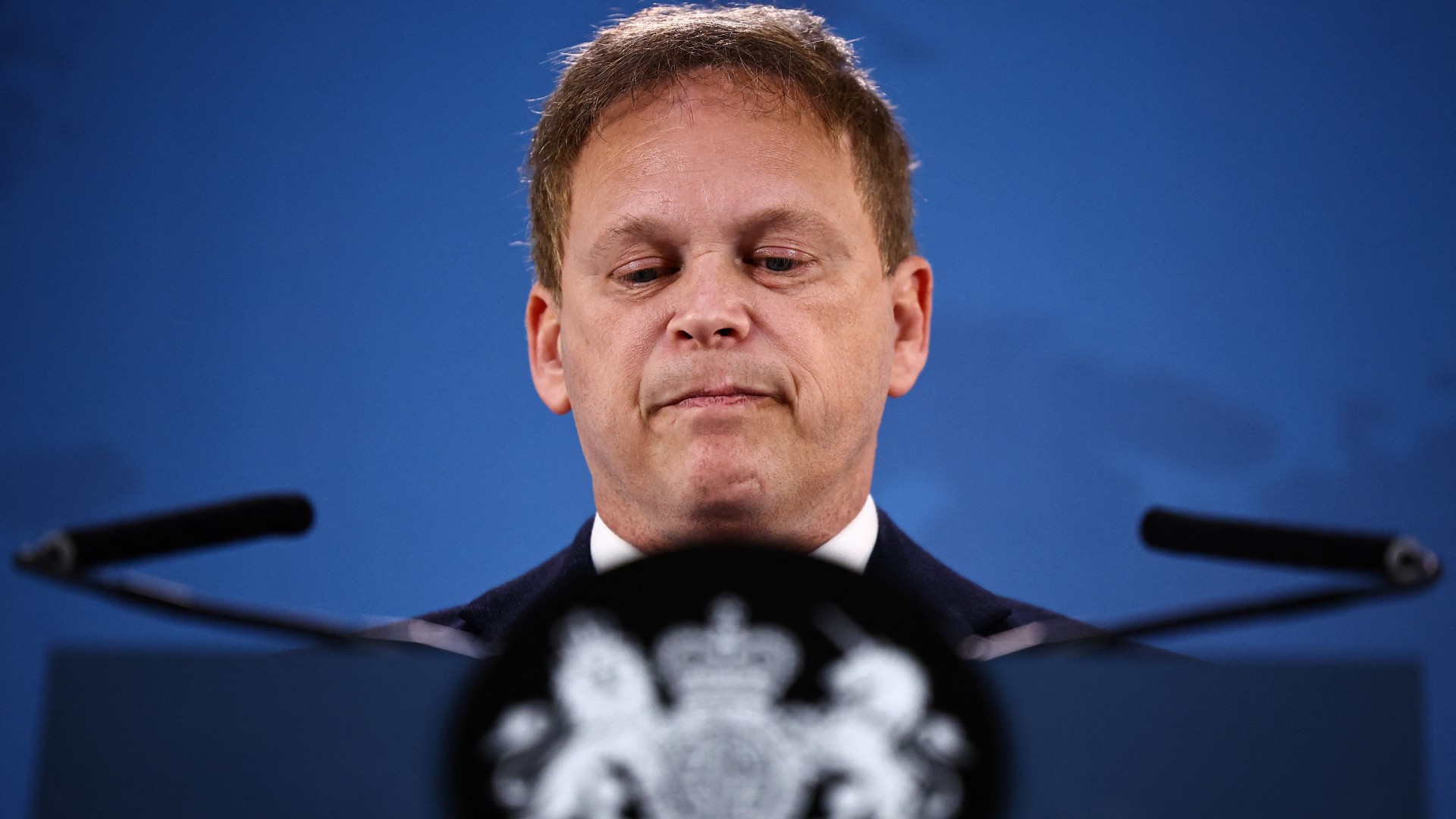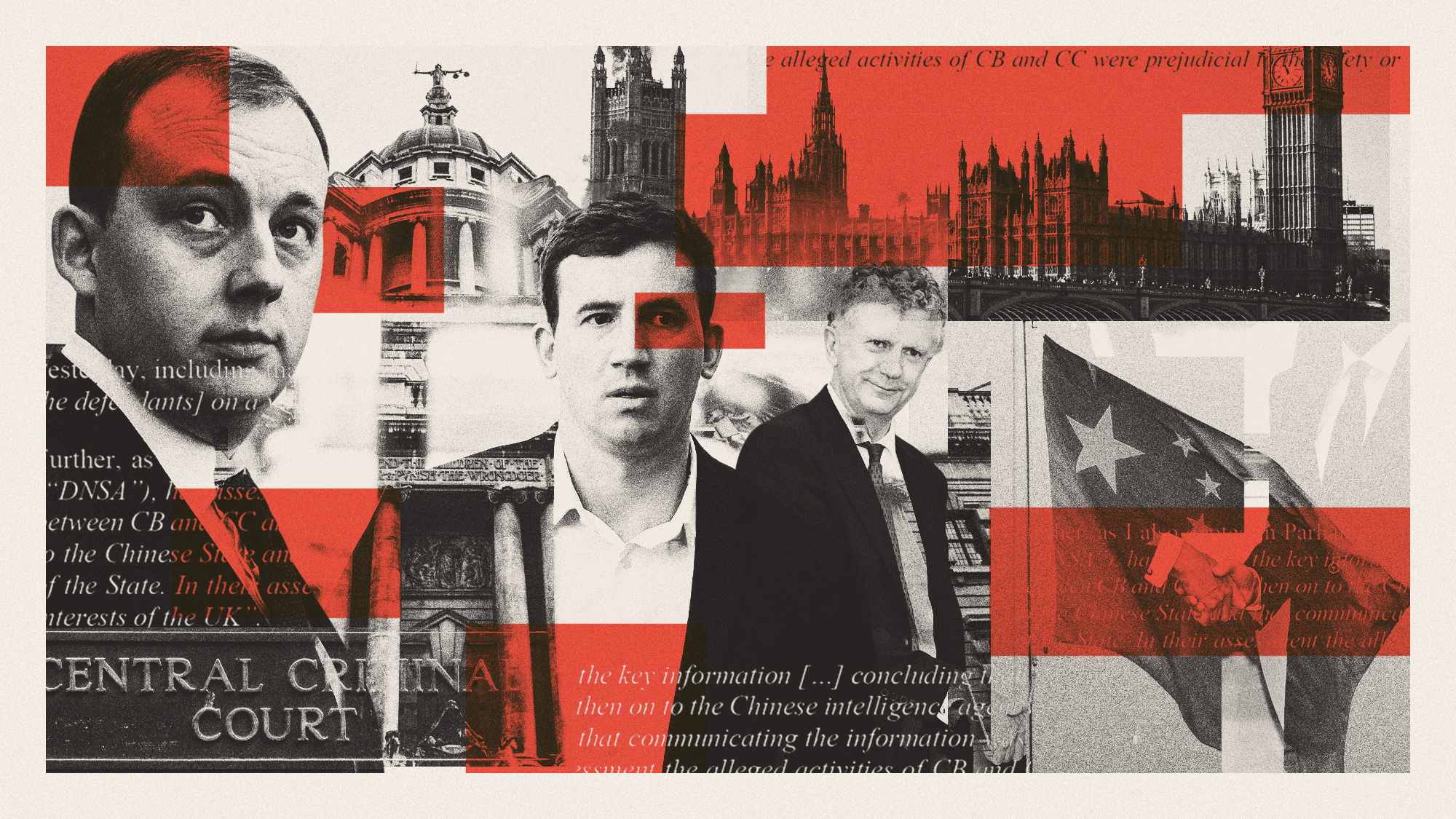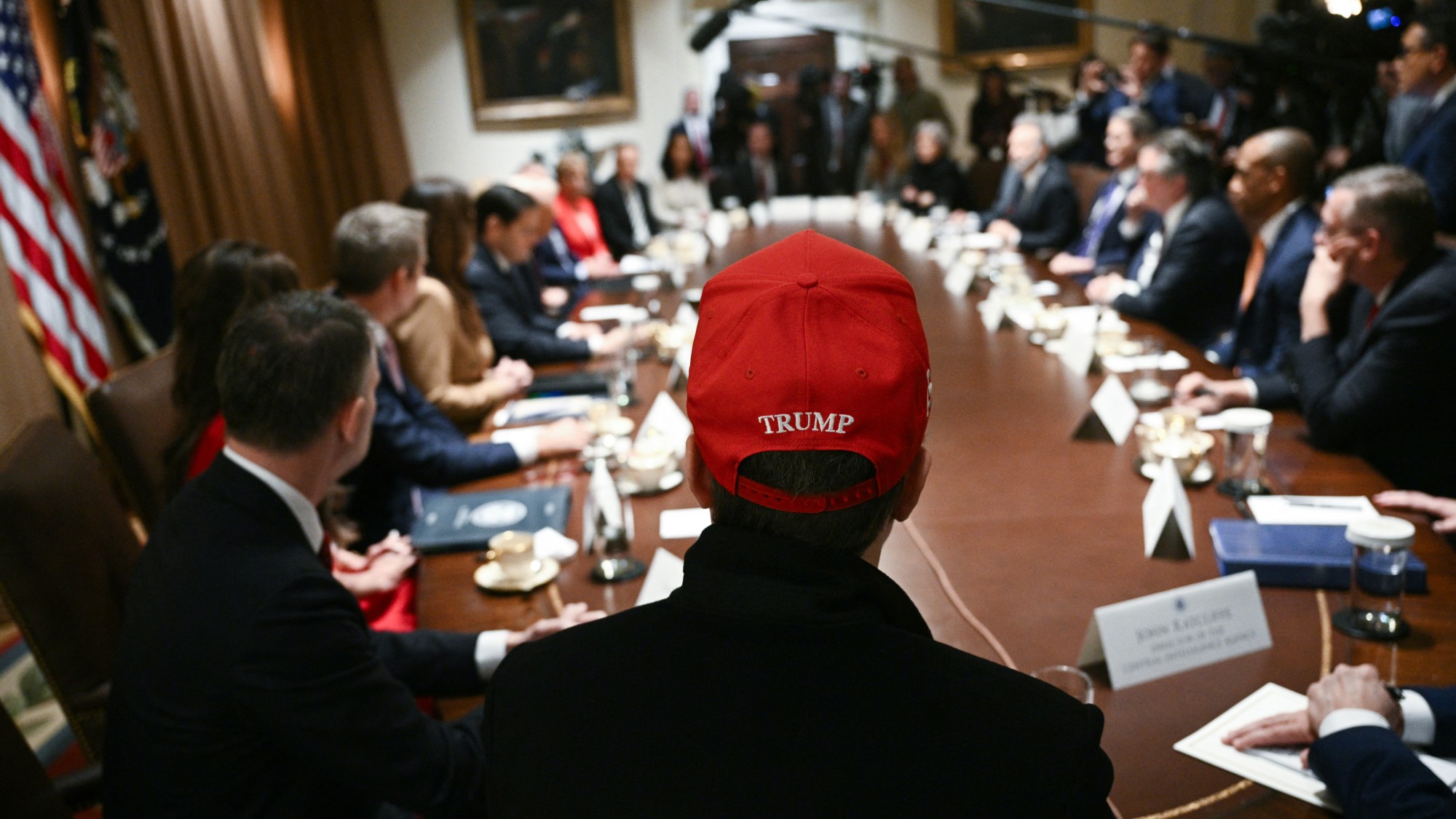Houthi air strikes: why wasn't Parliament consulted?
It is convention for prime ministers to put military action to a vote but it's not a constitutional requirement

A free daily email with the biggest news stories of the day – and the best features from TheWeek.com
You are now subscribed
Your newsletter sign-up was successful
Rishi Sunak is facing MPs today for the first time since ordering air strikes against Houthi rebels in Yemen.
The prime minister described joint UK and US strikes against 16 sites last week as "limited, necessary and proportionate action in self-defence" to protect global shipping in the Red Sea. It was the first time Sunak has decided to take military action since entering No. 10 over a year ago, "making the statement a significant political milestone for him", said the BBC.
As the US military confirmed one of its fighters had shot down an anti-ship cruise missile fired at one of its warships from a Houthi-controlled area of Yemen on Sunday, a "political row has erupted over the PM's failure to seek approval of Parliament for the strikes – despite briefing the Labour leader ahead of time", reported The Independent.
The Week
Escape your echo chamber. Get the facts behind the news, plus analysis from multiple perspectives.

Sign up for The Week's Free Newsletters
From our morning news briefing to a weekly Good News Newsletter, get the best of The Week delivered directly to your inbox.
From our morning news briefing to a weekly Good News Newsletter, get the best of The Week delivered directly to your inbox.
What the papers said
The PM has been criticised by some on the Labour left, as well as by the Liberal Democrats, the SNP and Plaid Cymru, for not seeking parliamentary approval. The Lib Dems' foreign affairs spokesperson Layla Moran said on X that it was "shameful" for Sunak to bypass MPs, and has "demanded a retrospective vote", reported The Telegraph. Former Labour leader Jeremy Corbyn described the decision not to recall Parliament "utterly disgraceful".
John McDonnell, who served as shadow chancellor under Corbyn, also came out against the government's unilateral action, "There should be no military action without Parliamentary approval", McDonnell said on X. "If we have learnt anything in recent years it's that military intervention in the Middle East always has dangerous & often unforeseen consequences. There is a risk of setting the region alight."
Yet MPs have "no legally established role in approving the deployment of the armed forces", according to a research briefing published on the House of Commons Library site last week, "and the government is under no legal obligation with respect to its conduct in such situations, including keeping Parliament informed".
Despite "intermittent discussion of constitutional reform" over the past two decades, said The New Statesman, the right to deploy UK armed forces remains part of the "royal prerogative", "a power that the prime minister derives through the Crown rather than through parliament".
A free daily email with the biggest news stories of the day – and the best features from TheWeek.com
In practice, however, "successive governments have consulted and informed the House of Commons about the decision to use force and the progress of military campaigns, although there has been little consistency in how that has been achieved", the Commons research briefing added.
Since the Iraq War, it has been "convention" to hold a vote on military action, said Sky News, but even this is "open to interpretation".
MPs voted down air strikes against pro-government forces in Syria in 2013, in what was seen as a "turning debate on parliamentary approval", Sky News said. They voted in favour of strikes against Islamic State in Iraq in 2014 and in Syria in 2015, but the then prime minister David Cameron decided against introducing new legislation on war powers. Theresa May then authorised UK military strikes against Syrian government targets in 2018 without prior parliamentary approval and without a subsequent vote.
Defence Secretary Grant Shapps told the BBC there was "quite a lot of consultation with Parliament, with the speaker, with the leader of the opposition and others", but that a full debate and vote in the Commons "would have provided perhaps too much information and detail to the Houthis".
The government's position is being backed by Labour leader Keir Starmer, who has argued the PM must have the ability to act.
Starmer rejected claims he has watered down one of his 2020 leadership campaign pledges, telling Laura Kuenssberg that his vow for military action to need support of the Commons only meant big boots-on-the-ground campaigns, rather than targeted air strikes like in the Red Sea. He could, though, "face more questions today", said Politico's London Playbook, with McDonnell's intervention a "preview of likely Labour divisions", said The New Statesman.
What next?
Shapps said the government will "look again" at further strikes against Houthi rebels if attacks on vessels in the Red Sea do not stop. And he confirmed the deployment of 20,000 military personnel across eastern Europe, in what The Times called "Britain's biggest land mobilisation to Nato in 40 years".
It comes after Foreign Secretary David Cameron said it was "hard to think of a time when there has been so much danger and insecurity and instability in the world". Concerns are "intensifying about the risks of wider escalation" after the latest attacks by the West on Houthi sites, said The Guardian.
Sunak is scheduled to give a Commons statement this afternoon, in which he will address the Yemeni air strikes as well as his trip to Ukraine last week in which he committed £2.5 billion in extra military aid this year.
"Buckle up," said Politico, after Defence Minister James Cartlidge told Times Radio that the statement would be "very lengthy and detailed".
-
 Quiz of The Week: 14 – 20 February
Quiz of The Week: 14 – 20 FebruaryQuiz Have you been paying attention to The Week’s news?
-
 The Week Unwrapped: Do the Freemasons have too much sway in the police force?
The Week Unwrapped: Do the Freemasons have too much sway in the police force?Podcast Plus, what does the growing popularity of prediction markets mean for the future? And why are UK film and TV workers struggling?
-
 Properties of the week: pretty thatched cottages
Properties of the week: pretty thatched cottagesThe Week Recommends Featuring homes in West Sussex, Dorset and Suffolk
-
 What would a UK deployment to Ukraine look like?
What would a UK deployment to Ukraine look like?Today's Big Question Security agreement commits British and French forces in event of ceasefire
-
 Would Europe defend Greenland from US aggression?
Would Europe defend Greenland from US aggression?Today’s Big Question ‘Mildness’ of EU pushback against Trump provocation ‘illustrates the bind Europe finds itself in’
-
 Why did the China spying case collapse?
Why did the China spying case collapse?Today’s Big Question Unwillingness to call China an ‘enemy’ apparently scuppered espionage trial
-
 Will the UK get involved in the Israel-Iran conflict?
Will the UK get involved in the Israel-Iran conflict?Today's Big Question Keir Starmer is 'walking a tightrope' in helping Israel limit Tehran's nuclear capabilities without being seen to do so
-
 Are the UK and Russia already at war?
Are the UK and Russia already at war?Today's Big Question Moscow has long been on a 'menacing' war footing with London, says leading UK defence adviser
-
 Is UK's new defence plan transformational or too little, too late?
Is UK's new defence plan transformational or too little, too late?Today's Big Question Labour's 10-year strategy 'an exercise in tightly bounded ambition' already 'overshadowed by a row over money'
-
 Is the 'coalition of the willing' going to work?
Is the 'coalition of the willing' going to work?Today's Big Question PM's proposal for UK/French-led peacekeeping force in Ukraine provokes 'hostility' in Moscow and 'derision' in Washington
-
 Is it safe to share state secrets with the US?
Is it safe to share state secrets with the US?Today's Big Question Accidental top-level leak stokes security concerns from America's allies